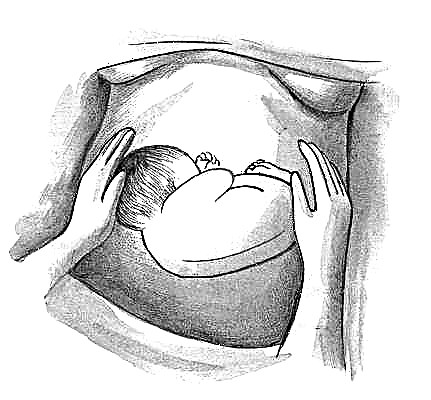Often, young mothers, whose children are bottle-fed, are faced with an unpleasant problem - constipation in babies. First of all, moms shouldn't panic, as bottle-feeding constipation is quite common. It is better to pay attention to the reasons due to which constipation occurs, and methods that will help eliminate or avoid this trouble.

Causes of constipation in a newborn
Pediatricians publicly declare that constipation is more common in children who are bottle-fed. The main reason for this is unnatural formula milk with a high content of fatty acids and artificial additives. Not yet adapted to the digestion of such difficult food, the baby's gastrointestinal tract begins to “resent”. The digestion process is delayed, and the small intestine is unable to empty out in time. It is artificial feeding that is the main cause of constipation.
Experts identify a number of other reasons that affect the violation of the digestive process and timely defecation:
- A sharp transition to a new type of food (in this case, artificial feeding);
- Low fluid intake, lack of it;
- Using different feed mixes and changing them frequently;
- Dysbacteriosis (See article on dysbiosis).
How to recognize constipation in a child?
To determine if there is a difficulty in the act of defecation, parents need to observe the amount of evacuation in their child. So if:
- There is no defecation for 2-4 days (See how many times a child should poop in 1 month);
- When trying to empty himself, the newborn blushes, pushes, puffs, cries;
- The baby's tummy is too tight and swollen -
the baby is more likely to be constipated.
In most cases, mothers are in no hurry to seek the advice of specialists, but begin “treatment at home”: they give the child more water, use baby soap to irritate the rectum, and massage the tummy. Often, such actions end in success. Nevertheless, if the baby has difficulties with defecation quite often, it makes sense to consult a pediatrician. The doctor will give recommendations for eliminating this problem, and, if necessary, prescribe appropriate treatment.
(Clickable. The picture leads to an article about the symptoms and treatment of constipation in newborns)

How to relieve constipation in a newborn?
Before starting the fight against constipation, you need to visit a pediatrician who will correctly determine the reasons for delayed bowel movements and prescribe appropriate treatment. The pediatrician will also provide valuable advice on nutritional management and steps to take to relieve constipation.
- Observe the correct diet.
The baby should receive formula at a certain time and in equal amounts. You don't need to force your baby to drink the entire contents of the bottle if he doesn't want to. With artificial feeding, it is important to rationally organize the feeding regime. It is desirable that the newborn be fed every 3 hours. See the article How much should a newborn eat
Modern experts agree that when breastfeeding, it is more correct to feed the baby on demand. In the case of "artificial", this is not entirely appropriate. Remember that formula takes longer to digest and is more difficult for baby's intestines to digest. And frequent feeding can provoke constipation. Therefore, monitor the frequency of feeding and adhere to the recommended amounts.
- Spread the newborn on the tummy more often (recommended from 2 weeks).
This helps to pass gas and reduce the likelihood of problems with bowel movements.
- Massage your belly.
The technique of such a massage should be mastered by every mother. There is nothing tricky and complicated in this. It is necessary to stroke the baby's tummy in a clockwise circular motion (in the intestinal area, without affecting the liver zone). See tummy massage article
Video: top 6 massage movements for constipation in newborns
[sc: rsa]
- Give your baby plenty of fluids (water, dill water).
The components that make up milk mixtures very often make children thirsty. In this regard, it is necessary to timely satisfy the “artificial” need for liquid. It is advisable to do this in the intervals between main feedings.
- In case of dysbiosis - take medications that normalize the intestinal microflora.
If the local pediatrician identifies dysbiosis as the cause of constipation, then he will definitely prescribe a course of drugs that improve the intestinal microflora. Such medications must be taken strictly according to the doctor's prescription and in strict accordance with the dosage indicated by him!
If all the suggested methods have not helped to cope with the problems of bowel movement, the pediatrician may prescribe laxatives. The most common is Duphalac and its analogues. Rectal glycerin suppositories are well tolerated by newborns. These medications should only be taken with the advice of a doctor.
We read:
- Laxative medicines (list)
- How to give an enema to a child
- Enema Microlax



